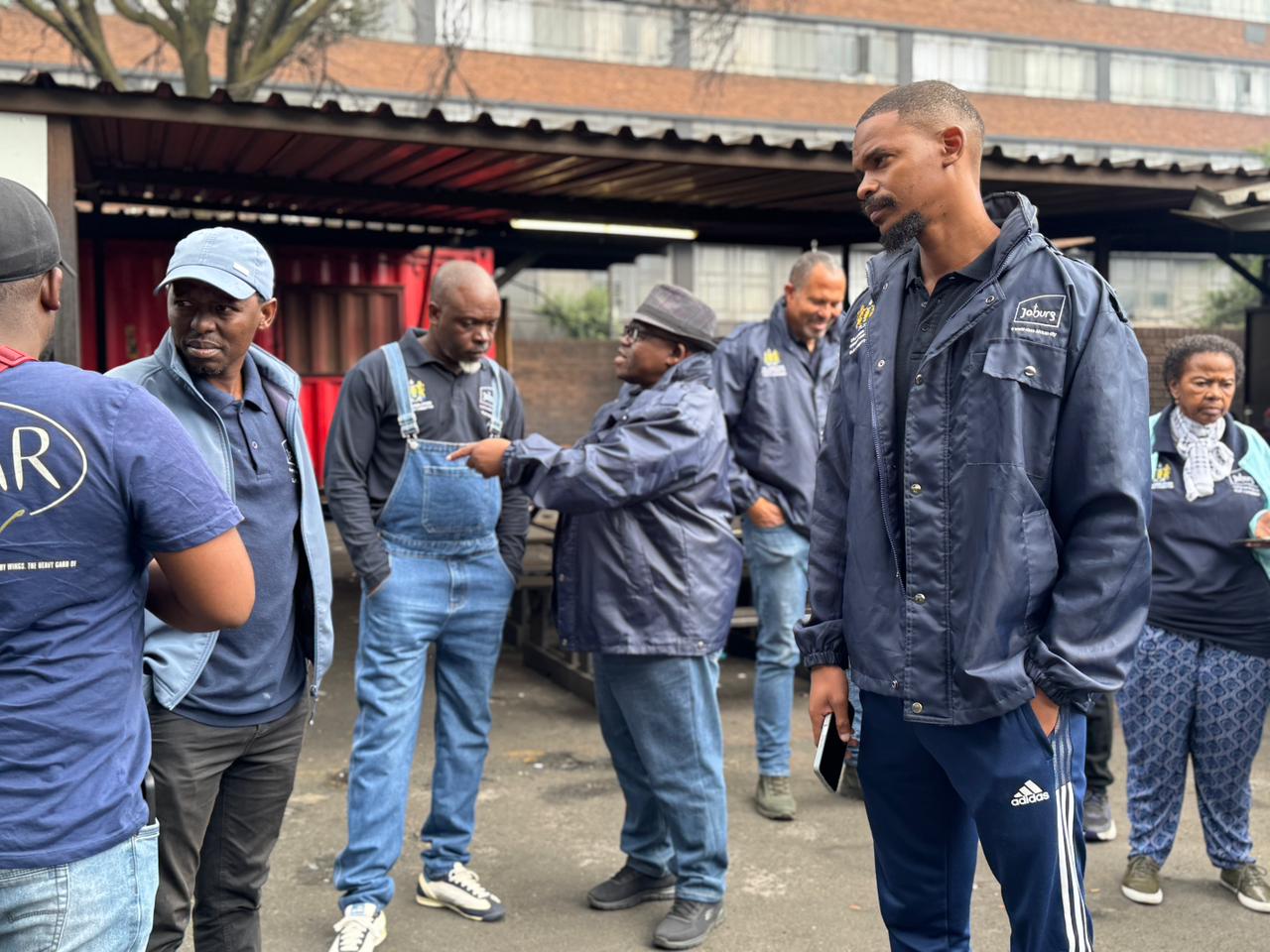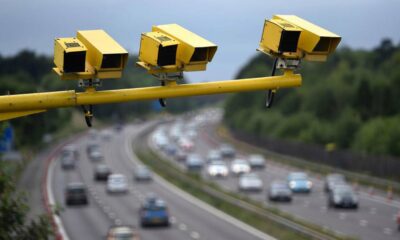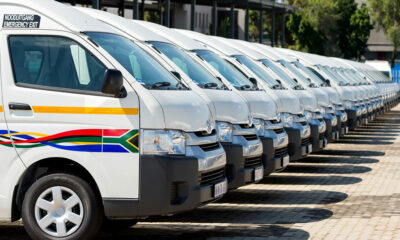News
“Crackdown Chaos: Johannesburg’s Street Traders Say the City’s Clean-Up Is Crushing Their Livelihoods”

Crackdown Chaos: Johannesburg’s Street Traders Say the City’s Clean-Up Is Crushing Their Livelihoods
The City of Johannesburg’s latest “clean-up” operation has turned parts of the inner city into ghost streets, but not everyone is celebrating the fresh pavements and planted trees. For many informal traders, especially foreign nationals, the campaign feels less like renewal and more like eviction.
A Market Silenced
De Villiers Street, once a noisy and colourful maze of thrift stalls known locally as Dunusa, now stands eerily quiet. Where second-hand jeans once piled high, small saplings now line the pavement. City trucks clear away debris, metro police vehicles circle the block, and the traders who once made a living here watch from the sidelines angry, scared, and uncertain.
“It’s like they want to erase us,” says John Mathebula, a 46-year-old Mozambican vendor who has sold clothes in Johannesburg for over two decades. “They come without warning, throw away our goods, and call it cleaning the city. How is that fair?”
Mathebula says even traders with valid permits have been forced off the streets. “I have nine children. This is my only way to feed them,” he says, adding that the city’s crackdown could push many jobless people toward crime. “If you take away people’s income, what do you think they’ll do?”
A City Preparing for Its Close-Up
Officials insist the operation, part of a city-wide “rejuvenation drive” is about restoring Johannesburg’s dignity. With the city set to host the G20 Summit in November, insiders say the timing is no coincidence.
Mayor Dada Morero has defended the move, noting that between 20,000 and 25,000 informal traders operate in the city. Earlier this month, the city restarted its trader permit process alongside a major street-clearing initiative.
But critics say it’s a political showpiece and one that hits the poorest the hardest.
Traders Cry Foul
For many traders, the city’s promise of regulation feels more like exclusion. Maria Jaquim, 49, has been selling fruit and second-hand clothes in Johannesburg since 1997. She raised four children through her street business one of whom recently graduated from Unisa.
“When they say foreigners must go, it hurts,” she says softly. “My life is here. I’ve been here 27 years.”
Jaquim says her permit expired years ago, and attempts to renew it went nowhere. “They said they’d send messages, but we never got any. Now they just come and take our stock,” she says, estimating that she’s lost over R2,000 worth of goods.
Politics in the Pavement
Beyond the city’s bylaw enforcement, traders allege political groups are using the clean-up as a tool to win votes. Movements like Operation Dudula, the Patriotic Alliance (PA), and March and March have been vocal about driving foreign traders out of public spaces.
“They’re using this to get support for next year’s elections,” claims Mathebula. “They say foreigners must go, but they don’t say what comes next.”
When contacted, March and March founder Jacinta Ngobese refused to comment, telling journalists, “Argh, write whatever you like! It’s clear you have an agenda.”
A Divided City
Public opinion is split. On social media, some Joburg residents applaud the city’s efforts to bring “order and safety” back to the CBD. “It’s finally clean and walkable again,” wrote one local on X (formerly Twitter).
Others accuse the city of scapegoating migrants and deepening unemployment. “You can’t fix urban decay by destroying people’s livelihoods,” another user posted.
Even among everyday shoppers, opinions differ. One woman from Linden, shopping nearby, said the new look feels “safer and less chaotic.” But for traders like Mathebula and Jaquim, safety means nothing if it comes at the cost of survival.
Johannesburg’s informal economy, from street food vendors to thrift sellers, has long been a safety net for thousands shut out of formal employment. Economists estimate that the sector contributes billions to South Africa’s urban economy, often supporting entire families on minimal income.
Yet, as the city cleans up for global attention, those same people are being pushed to the margins, again.
For Mathebula, the irony is bitter. “They say they’re restoring the city’s glory,” he says, glancing down De Villiers Street where his stall once stood. “But whose glory is it, if the people who built this city can’t work here anymore?”
{Source: IOL}
Follow Joburg ETC on Facebook, Twitter , TikTok and Instagram
For more News in Johannesburg, visit joburgetc.com


























